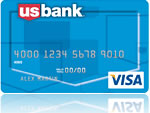Below are some of the top recent articles in the news that include tips on how to rebuild and boos your FIVO credit score, improving business credit scores, balance transfer cards, credit and credit rating and bankruptcy.
Tricks and Tips on How to Quickly Boost Your FICO Credit Score
Learn tips about how to boost your score quickly so you can qualify for the best interest rates and lower insurance premiums. You may want to consider transferring balances to 0% rate credit cards (Sponsor Link) in order to pay your credit card debt off faster. The amount of debt are carrying on unsecured credit cards has a big impact on your credit score and you should always focus on lowering your debt more than your credit score- your credit score will naturally rise as you pay down debt.
Or, if your credit score is on the low end (660 or lower- check free services like the Credit Karma to get your score and to get free tips on increasing your score), we always recommend secured cards as a great way to rebuild credit. (Sponsor Link) If you are looking to improve a business score, check out the article below.
How to get a perfect credit score: Tidy up your report to give yourself the best chance of getting a top mortgage rate
Source: https://www.thisismoney.co.uk/money/cardsandloansguides/article-5550725/How-perfect-credit-score.html This is Money (please note that this is a UK publication)
Banks reserve their best lending deals for those borrowers with the highest credit scores. To give yourself the best chance of getting a top rate, make some time to tidy up your credit file.

Your credit report contains information from banks and other lenders, insurers, mobile phone firms and some utility suppliers. As well as personal information such as your name, address and whether you’re on the electoral roll, it also shows what credit cards, mortgages and bank accounts you have in place, whether you’ve missed any payments, defaulted on debt (payments 30 days late or more are reported in the U.S.) and even just applied for a credit agreement recently.
This information is held by three reporting agencies (also called credit bureaus) — Experian, Equifax and TransUnion. They use it to calculate your credit score which tells financial companies how much risk you are likely to pose as a customer. When rebuilding your credit, you should obtain a copy of your report from each of the three bureaus and can do so by visiting AnnualCreditReport.com.
5 Secrets of Improving Credit Scores in Small Business Finance
Source: Small Business Trends
Most entrepreneurs at one point or another must search for funding to launch or grow their businesses. Startups, by nature, do not have a track record of generating revenue or profits. Nor do they have a history of repaying loans. However, individuals do.

When trying to improve creditworthiness, one factor is to reduce your utilization rate. Hold off on making purchases that are not necessary at this time so that you do not add to the debt that your company has already incurred. Use the savings to pay down debt and ultimately raise your credit score.
Here are some tips for improving your credit score.
1. Review Credit Report
2. Open a Business Credit Card
3. Schedule Automatic Payments
4. Run a Lean Company and Reduce Your Debt
5. Refrain from continuously opening credit cards and shifting debt
https://smallbiztrends.com/2018/03/improving-credit Go here for the full article from Small Business Trends.
3 Steps To on How to Rebuild From Bankruptcy
Source: Forbes
In 2017, more than 700,000 people filed for bankruptcy. A bankruptcy can remain on a credit report for up to ten years, depending upon the type filed. You do not have to wait ten years for the sting of bankruptcy to be removed. A  study published this week by LendingTree looked at loan terms offered to more than one million LendingTree users during 2017. It found that:
study published this week by LendingTree looked at loan terms offered to more than one million LendingTree users during 2017. It found that:
- After just two years, 65% of people who filed bankruptcy had a score of 640 or higher
- After three years, people who apply for a mortgage with a bankruptcy on their record paid only 19 bps more than people with no bankruptcy
- The LendingTree data confirms what I have experienced during my career in consumer banking: if you have a plan and behave responsibly, you can recover from bankruptcy quickly. If you have filed for bankruptcy, here are three steps you can take to ensure a rapid recovery.
Once your bankruptcy is discharged, open a secured credit card. Typically you can find a secured card that does not charge an annual fee. With a secured card, you must provide a deposit. Your credit limit will be …
Editor’s Note: Shop for secured cards online or through your local bank/credit union. You can often increase a credit score by 50 points or more within 6-12 months and be able to qualify for an unsecured card. If you’re not interested in getting a secured card (they do charge interest if you carry a balance), then consider a service like Self Lender (which has recently rebranded as Self) or a credit builder loan at your local bank or credit union (you usually have to use your own money to secure the loan). We advise that you avoid credit repair companies at all costs (see customer comments below).
Related Articles:
Longest No Interest Credit Card Balance Transfer Offers for 2018
Will it Hurt my Credit Score If I Apply for a Balance Transfer


 study published this week by LendingTree looked at loan terms offered to more than one million LendingTree users during 2017. It found that:
study published this week by LendingTree looked at loan terms offered to more than one million LendingTree users during 2017. It found that:
